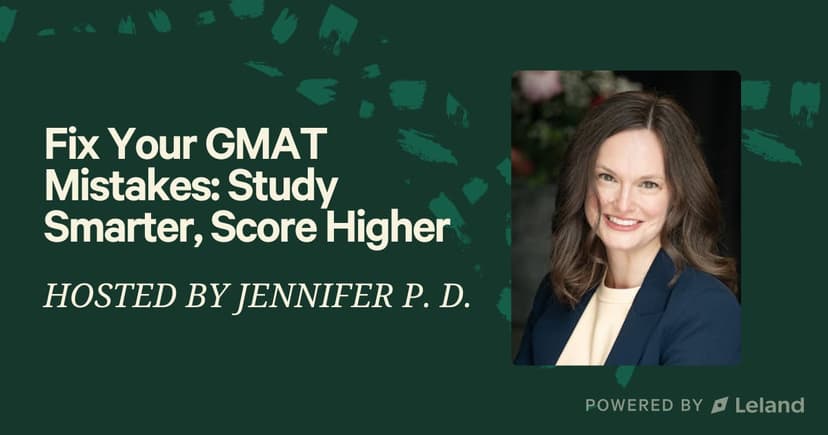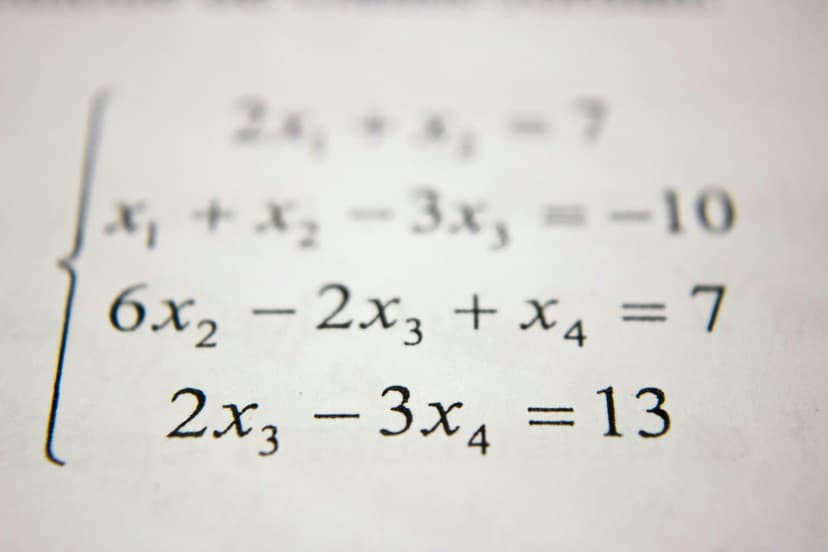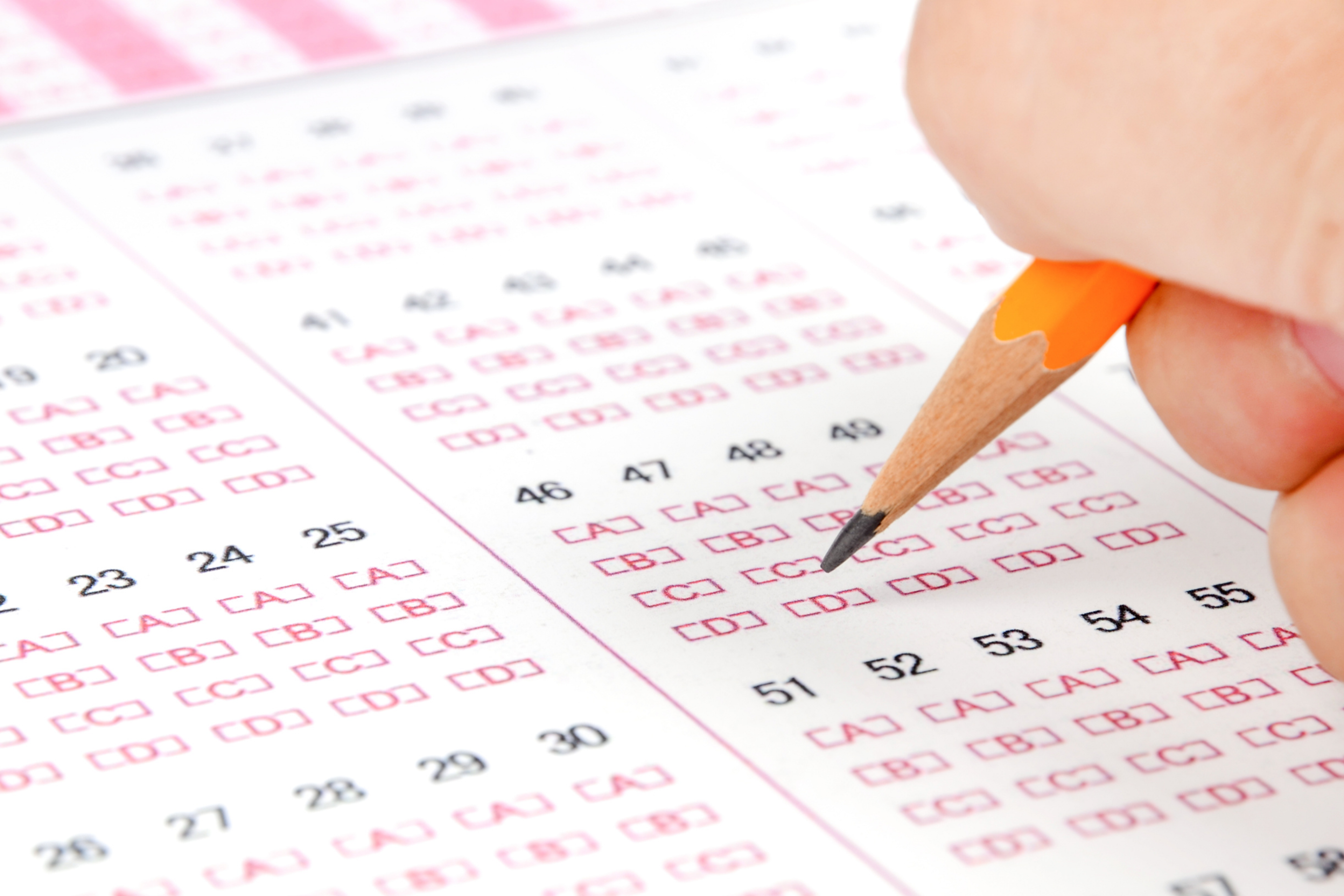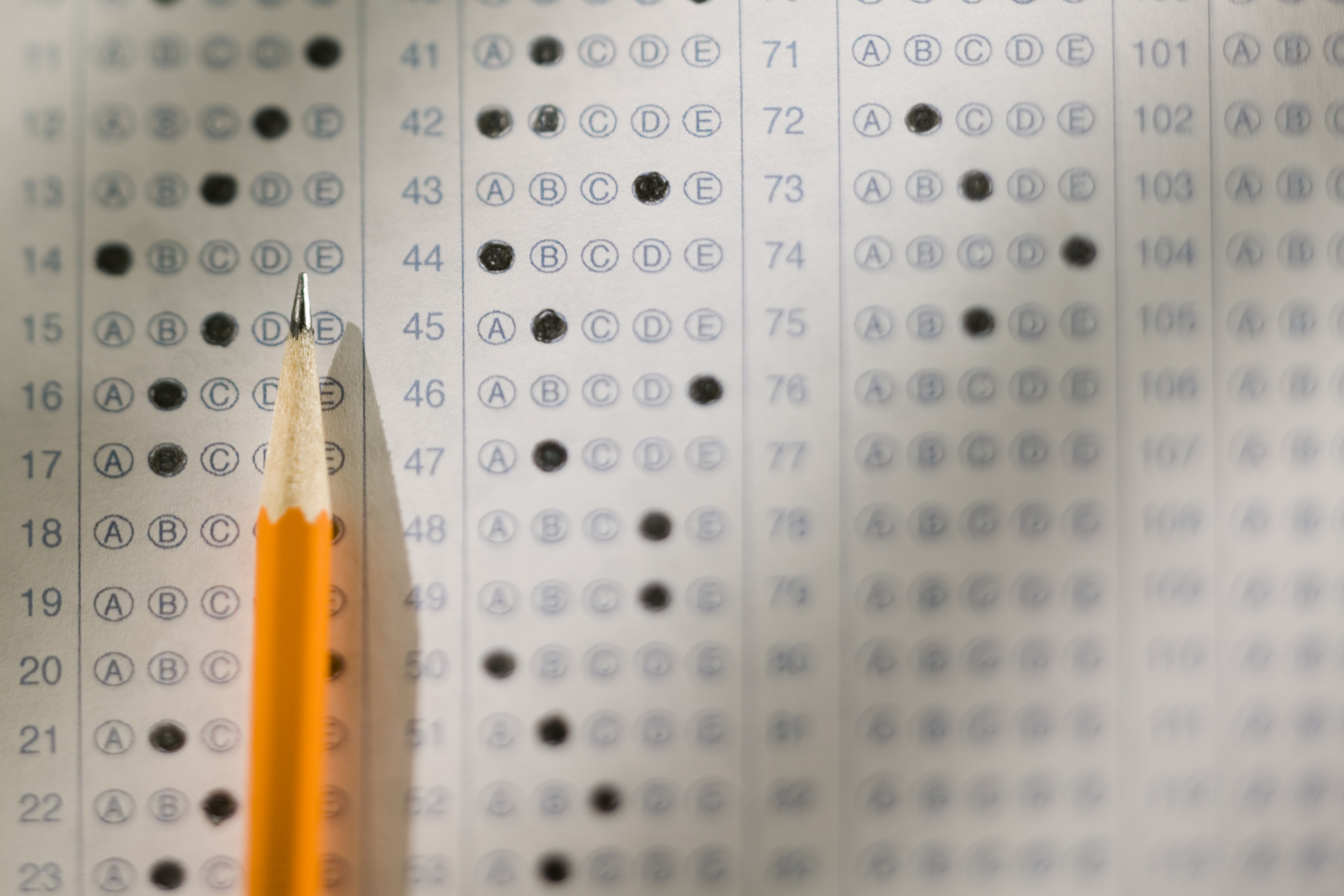
Join a free event
Learn from top coaches and industry experts in live, interactive sessions you can join for free.
Table of Contents
The GMAT Verbal section is critical in determining a candidate’s overall GMAT score. Among its three core components—Reading Comprehension, Critical Reasoning, and Sentence Correction—Reading Comprehension questions assess a test-taker’s ability to analyze, interpret, and extract information from complex passages.
To perform well, candidates must develop a strategic approach to tackling GMAT reading comprehension passages effectively.
About the GMAT Verbal Section
The GMAT Verbal section consists of 36 questions, to be completed within 65 minutes. These questions are divided into Reading Comprehension, Critical Reasoning, and Sentence Correction. Reading Comprehension questions require candidates to analyze comprehension passages from various disciplines, including humanities, social sciences, and natural sciences. Critical Reasoning questions test a candidate’s ability to evaluate arguments, while Sentence Correction questions focus on grammar and clarity.
Reading comprehension questions form a significant portion of the Verbal section. These comprehension questions assess a test-taker’s ability to identify the main idea, determine the passage’s primary purpose, recognize direct evidence, and analyze the argument structure. The challenge lies in distinguishing between correct answers and wrong answers while managing time efficiently. Candidates must carefully evaluate the following statements in each passage to determine the most accurate interpretations and avoid misleading answer choices.
Read: GMAT Focus Edition: What You Need to Know
Key Aspects of GMAT Reading Comprehension Questions
GMAT reading comprehension questions assess multiple skills, including identifying the passage’s main focus, understanding the relationship between different paragraphs, and making logical inferences. To tackle these questions successfully, candidates must recognize and master different question types:
1. Main Idea Questions
These questions test a candidate’s ability to determine the primary purpose of the passage. The correct answer will summarize the main focus of the passage without unnecessary details.
- Example: “What is the primary purpose of the passage?”
Tip: Focus on the first and last paragraphs, as they often introduce and conclude the main argument.
2. Detail-Oriented Questions
These questions require test-takers to locate specific information explicitly stated in the passage. They typically include phrases like "according to the passage" or "the passage states."
- Example: “According to the passage, which of the following statements is true?”
Tip: Skim for keywords from the question to find direct evidence in the passage.
3. Inference Questions
Inference questions require candidates to read between the lines and determine what the passage suggests rather than what is explicitly stated. These questions often require logical conclusions based on indirect evidence.
- Example: “The passage suggests which of the following about [topic]?”
Tip: Avoid extreme or broad answers. The correct choice will be supported by indirect evidence within the passage.
4. Function/Purpose Questions
These questions assess why the author included a particular sentence or paragraph and its role in the overall passage structure.
- Example: “What is the function of the third paragraph in the passage?”
Tip: Identify whether the section introduces a new idea, provides supporting evidence, or contrasts an earlier point.
5. Tone and Attitude Questions
These questions evaluate the author’s perspective on the topic discussed. Recognizing whether the author’s tone is neutral, skeptical, or supportive is key to answering correctly.
- Example: “Which statement best describes the author’s attitude toward [subject]?”
Tip: Pay attention to descriptive words that indicate emotion or bias.
6. Logical Structure Questions
These questions analyze the organization of the passage and how the author presents arguments. They help in understanding how different parts of the passage are connected.
- Example: “Which of the following best describes the structure of the passage?”
Tip: Look for transitional phrases that indicate relationships between ideas, such as problem-solution, cause-effect, or comparison.
7. Strengthen/Weaken Questions
Less frequent but important, these questions ask candidates to evaluate arguments presented in the passage by identifying information that would strengthen or weaken them.
- Example: “Which of the following would most strengthen the author’s argument?”
Tip: Identify the argument’s two components—the premise and conclusion—and determine what additional evidence would support or challenge it.
Strategies to Tackle GMAT Reading Comprehension Questions
1. Master Active Reading
Success in reading comprehension requires a structured approach to reading each passage. Test-takers should focus on the passage’s structure, key ideas, and logical transitions between arguments. Paying attention to shifts in tone and purpose helps in predicting potential questions and identifying supporting evidence. Underlining key points and summarizing paragraphs in a few words can improve retention and recall.
2. Identify the Author’s Argument
Many GMAT reading comprehension questions assess a test-taker’s ability to grasp the author's argument. Recognizing the author's stance, the passage’s main idea and key supporting points simplifies answering inference and function-based questions. Candidates should distinguish between facts and opinions, as well as recognize cause-and-effect relationships within the passage.
3. Manage Time Effectively
Efficient time management is crucial for success in the GMAT Verbal section. Since the test is time-sensitive, candidates should allocate about one minute to read each passage and 30 seconds per question. Prioritizing key arguments while skimming less critical details helps maintain accuracy without wasting valuable time. Developing the ability to quickly eliminate incorrect answer choices also improves pacing.
4. Recognize and Avoid Common Answer Traps
The GMAT often includes misleading answer choices designed to confuse test-takers. Candidates should be cautious of:
- Extreme wording that is not supported by the passage.
- Factually correct details that are irrelevant to the question.
- Distorted interpretations of the passage’s primary purpose.
- Answers that misrepresent key arguments or lack supporting evidence.
Developing an awareness of these common traps enhances accuracy and prevents unnecessary mistakes. By approaching each question methodically, test-takers can improve their ability to select the best answer while avoiding misleading options.
Read: How to Study for GMAT: The GMAT Tutor's Guide and GMAT Study Plan: Strategies to Ace Your Prep and Achieve Success
Effective Practice for GMAT Reading Comprehension
Regular comprehension practice is essential for mastering GMAT reading comprehension questions. Utilizing GMAT reading comprehension practice sets allows candidates to reinforce their understanding of different question types. Additionally, reviewing explanations for incorrect answers can clarify reasoning errors and strengthen test-taking strategies.
Some effective practice techniques include:
- Using official GMAT RC passages - Practicing with official questions ensures exposure to the format and complexity of actual test material.
- Analyzing why other answer choices are incorrect - Understanding why specific answers are wrong improves logical reasoning skills.
- Simulating test conditions - Taking timed practice tests builds stamina and enhances time management skills.
Advanced Techniques for Difficult Questions
For difficult questions, test-takers should focus on understanding paragraph structures, recognizing the function of specific sentences, and comparing different answer choices systematically. Many challenging GMAT critical reasoning questions and reading comprehension questions require candidates to break down the argument’s two components—the premise and the conclusion—to determine the most logical answer.
When dealing with difficult passages, identifying the passage’s main focus and the author's perspective can guide candidates toward the correct answer. Additionally, recognizing common GMAT question types, such as those addressing process explanations or contrasting viewpoints, can aid in selecting the best response.
Common Pitfalls in GMAT Reading Comprehension
Many test-takers struggle with GMAT reading comprehension due to common mistakes that affect accuracy and time management. Identifying and addressing these pitfalls can significantly improve performance in the Verbal section.
Frequent Mistakes to Avoid
- Failing to grasp the main idea and instead focusing too much on minor details, leads to misinterpretation of the passage’s primary purpose.
- Misinterpreting keywords or phrases that alter the meaning of an argument, especially in inference-based questions.
- Ignoring transitional words that indicate shifts in argument structure, such as "however," "therefore," and "on the other hand," which often signal contrasts or conclusions.
- Spending too much time on a single passage, which reduces the ability to complete all questions within the allotted time.
- Relying too heavily on outside knowledge, rather than focusing solely on the information provided in the passage.
- Failing to recognize incorrect answer traps, such as extreme language, distorted interpretations, or answers that are factually correct but irrelevant.
- Overlooking the role of passage structure, which can help predict the types of questions that follow.
- Reading too passively, rather than engaging with the text to identify arguments, supporting evidence, and key takeaways.
- Not distinguishing between fact and opinion, which is crucial for answering critical reasoning questions accurately.
- Skipping key sentences in complex paragraphs, which often contain the central argument or necessary supporting details.
How to Avoid These Mistakes
Avoiding these pitfalls requires:
- Practicing active reading techniques to quickly identify key ideas and logical structures.
- Developing the ability to recognize how a passage suggests key themes and arguments.
- Answering questions strategically by eliminating extreme or misleading answer choices first.
- Managing time effectively by allocating no more than one minute per passage and 30 seconds per question on average.
- Reviewing incorrect answers to understand reasoning errors and improve logical analysis.
Pave Your Path to GMAT Success with Expert Coaching
Top GMAT test prep coaches provide the structure, strategies, and insights needed to master reading comprehension efficiently. They help candidates break down complex passages, recognize common traps, and apply proven techniques to tackle questions with confidence. Personalized feedback and targeted practice ensure better time management and accuracy. With expert guidance, GMAT verbal mastery becomes achievable, leading to higher scores and stronger performance on test day.
Read next:
- How to Solve Critical Reasoning Questions in the GMAT Verbal Section
- Average GMAT Scores by Business School
FAQs
How can I improve my reading speed without compromising comprehension?
- Improving reading speed while maintaining comprehension involves regular practice with complex texts, focusing on understanding the main ideas, and gradually increasing reading pace. Engaging with challenging materials can enhance both speed and comprehension over time.
Are there specific note-taking strategies recommended for GMAT Reading comprehension?
- Effective note-taking strategies include summarizing each paragraph's main idea in a few words, noting the author's tone, and outlining the passage's structure. These techniques help in retaining key information and efficiently navigating the passage during questions.
How should I approach unfamiliar vocabulary within passages?
- When encountering unfamiliar vocabulary, it's advisable to infer meanings from context rather than spending excessive time on individual words. Understanding the overall sentence or paragraph can provide clues to the word's meaning, ensuring that comprehension remains intact.
Is it beneficial to read the questions before the passage?
- Reading the questions before the passage can help identify what information to focus on, but it may also disrupt the natural flow of understanding. Many experts recommend reading the passage first to grasp the main idea and structure, then addressing the questions with a clear context in mind.
How can I stay focused during dense or uninteresting passages?
- Maintaining focus on dense or uninteresting passages can be achieved by actively engaging with the text, such as by summarizing key points mentally, predicting possible questions, and relating the material to broader concepts. Active engagement keeps the mind attentive and improves comprehension.
What role does understanding the passage's structure play in answering questions?
- Understanding the passage's structure is crucial, as it helps in identifying the relationships between ideas, locating information quickly, and anticipating the types of questions that may be asked. Recognizing how the passage is organized aids in efficient and accurate responses.
How can I effectively eliminate incorrect answer choices?
- Effectively eliminating incorrect answer choices involves identifying options that are too extreme, irrelevant, or not supported by the passage. Cross-referencing each choice with the passage content ensures that the selected answer aligns with the author's intent and the information presented.
Browse hundreds of expert coaches
Leland coaches have helped thousands of people achieve their goals. A dedicated mentor can make all the difference.















